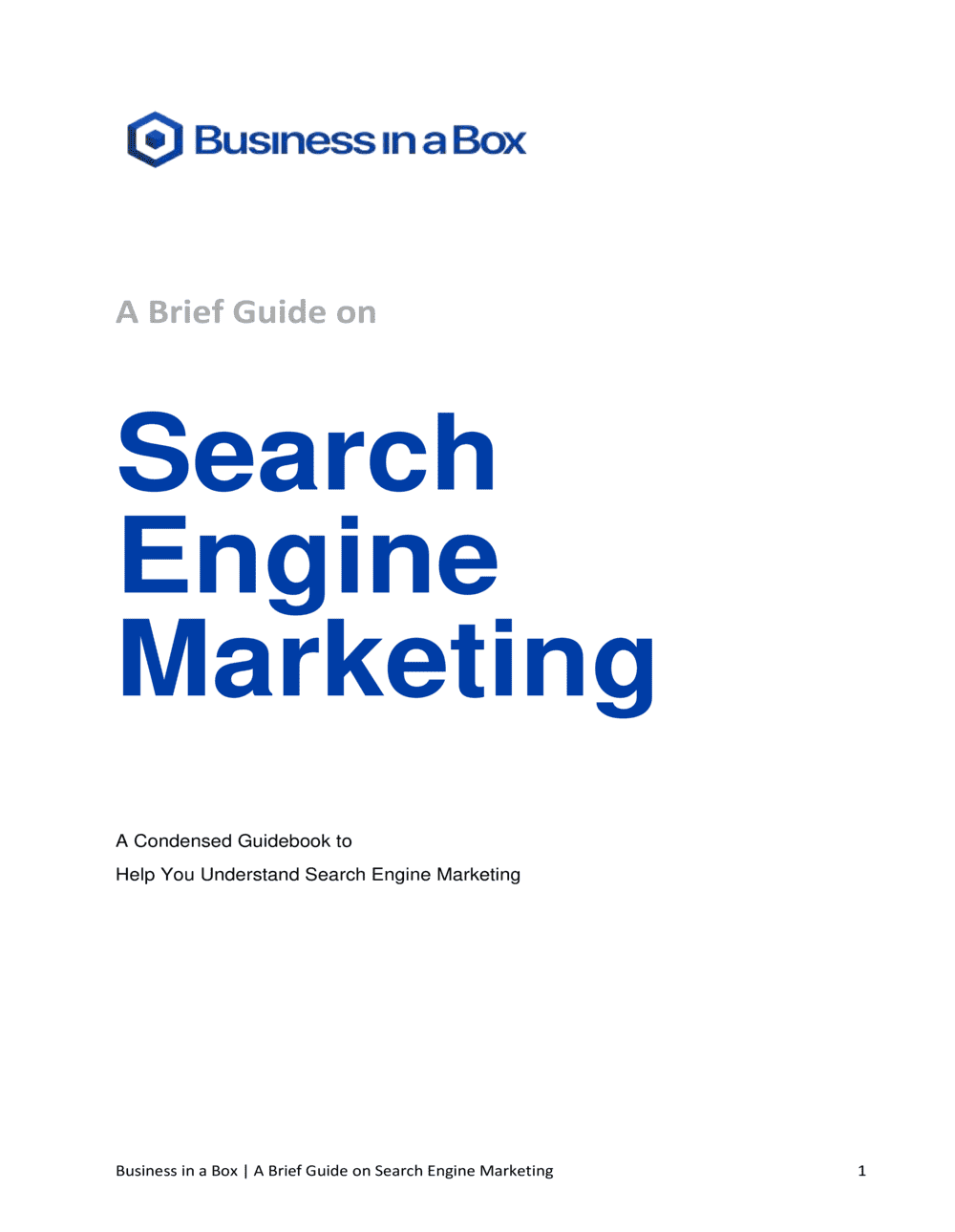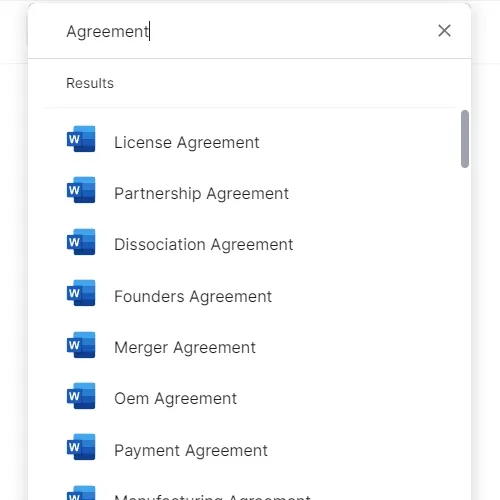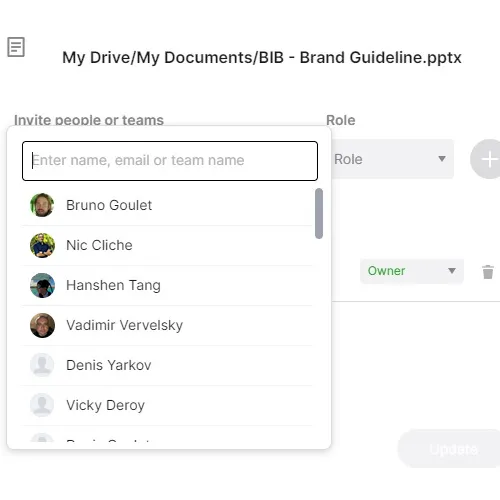Guide On Search Engine Marketing

Document content
This guide on search engine marketing template has 8 pages and is a MS Word file type listed under our sales & marketing documents.
Sample of our guide on search engine marketing template:
A Brief Guide on Search Engine Marketing A Condensed Guidebook to Help You Understand Search Engine Marketing Table of Contents Search Engine Marketing - An Overview 3 What is Search Engine Marketing? 3 Why Search Engine Marketing is Vital for Your Business 4 How Search Engine Marketing Works 5 Key Advantages of SEM 7 Final Thoughts 8 Search Engine Marketing - An Overview The world seems to spend most of its time online nowadays. In a competitive marketplace, it is of the utmost importance for your business to be visible online. In the modern world of business, there is simply no better way to introduce potential customers to your business and the products or services you provide. Most people use search engines like Google or Bing to find anything and everything they're looking for. This is where search engine marketing comes in. Searching for something on a search engine triggers a response with all results relevant to your search-web pages ranked according to relevance determined by the search engine's algorithm. The goal of search engine marketing is then to ensure that your business or products appear on exactly the right search pages at exactly the right time. What is Search Engine Marketing? Search engine marketing (SEM) is also known as Paid Search Advertising and entails marketing your business by paying companies that manage search engines to include your advertisements in their algorithms. Advertisers bid for keywords that are often used in online searches, allowing their ads to appear with other search engine results. It goes without saying that SEM should be an integral part of the online marketing strategy of any business. Don't Confuse SEM with SEO Search engine marketing or SEM is entirely different from search engine optimization or SEO, although the two are often confused. While SEM refers to paying for advertisements to appear in search engine results, SEO refers to creating online content in such a way as to optimize your website's ranking in search engine results. Why Search Engine Marketing is Vital for Your Business Competing in the modern world of business requires a comprehensive and holistic online marketing strategy. SEO and paid advertisements on social media and select websites simply aren't enough anymore. This needs to be complemented by marketing with the largest player on the internet: the search engine. People have relied on search engines to find what they need for a number of years already, and this is becoming increasingly so. Think of the last time you even looked at a phonebook or in a newspaper for a product or service. To give you an idea of the reach of search engines, Google alone performs over 3.5 billion searches every single day. If you can manage to appear at the top of the right search results, you have an excellent chance of reaching the maximum number of potential clients at precisely the right time, thereby increasing your business' visibility and reaching your ultimate goal of increasing sales. How Search Engine Marketing Works Every time a keyword (which can be both a single word or a short phrase) is entered into a query on Google, for example, that keyword is made available to be auctioned off. Advertisers enter the auction by indicating their interest in participating, and the actual bidding proceeds by indicating how much they are willing to spend for every search click on their advertisement. Once you have "purchased" a keyword, the search engine allows your advertisement to appear alongside other search results every time your keyword is entered. Most search engines offer pay-per-click or pay-per-view options, which means you only pay for every time someone clicks on your advertisement or watches your video content. However, not every advertisement related to a keyword search will appear on every single search. This is because search engines take a number of factors into account when deciding where and when to display ads on searches. Advertisements are then ranked according to how much is paid for them as well as the quality score of the advertisement itself, which is determined by the algorithm during the auction. This determines your advertisement's ranking on search engine result pages (SERPS). When it comes to optimizing your SEM strategy, there are a number of vitally important things to remember: Bidding on Keywords
3,000+ Templates & Tools to Help You Start, Run & Grow Your Business

Document content
This guide on search engine marketing template has 8 pages and is a MS Word file type listed under our sales & marketing documents.
Sample of our guide on search engine marketing template:
A Brief Guide on Search Engine Marketing A Condensed Guidebook to Help You Understand Search Engine Marketing Table of Contents Search Engine Marketing - An Overview 3 What is Search Engine Marketing? 3 Why Search Engine Marketing is Vital for Your Business 4 How Search Engine Marketing Works 5 Key Advantages of SEM 7 Final Thoughts 8 Search Engine Marketing - An Overview The world seems to spend most of its time online nowadays. In a competitive marketplace, it is of the utmost importance for your business to be visible online. In the modern world of business, there is simply no better way to introduce potential customers to your business and the products or services you provide. Most people use search engines like Google or Bing to find anything and everything they're looking for. This is where search engine marketing comes in. Searching for something on a search engine triggers a response with all results relevant to your search-web pages ranked according to relevance determined by the search engine's algorithm. The goal of search engine marketing is then to ensure that your business or products appear on exactly the right search pages at exactly the right time. What is Search Engine Marketing? Search engine marketing (SEM) is also known as Paid Search Advertising and entails marketing your business by paying companies that manage search engines to include your advertisements in their algorithms. Advertisers bid for keywords that are often used in online searches, allowing their ads to appear with other search engine results. It goes without saying that SEM should be an integral part of the online marketing strategy of any business. Don't Confuse SEM with SEO Search engine marketing or SEM is entirely different from search engine optimization or SEO, although the two are often confused. While SEM refers to paying for advertisements to appear in search engine results, SEO refers to creating online content in such a way as to optimize your website's ranking in search engine results. Why Search Engine Marketing is Vital for Your Business Competing in the modern world of business requires a comprehensive and holistic online marketing strategy. SEO and paid advertisements on social media and select websites simply aren't enough anymore. This needs to be complemented by marketing with the largest player on the internet: the search engine. People have relied on search engines to find what they need for a number of years already, and this is becoming increasingly so. Think of the last time you even looked at a phonebook or in a newspaper for a product or service. To give you an idea of the reach of search engines, Google alone performs over 3.5 billion searches every single day. If you can manage to appear at the top of the right search results, you have an excellent chance of reaching the maximum number of potential clients at precisely the right time, thereby increasing your business' visibility and reaching your ultimate goal of increasing sales. How Search Engine Marketing Works Every time a keyword (which can be both a single word or a short phrase) is entered into a query on Google, for example, that keyword is made available to be auctioned off. Advertisers enter the auction by indicating their interest in participating, and the actual bidding proceeds by indicating how much they are willing to spend for every search click on their advertisement. Once you have "purchased" a keyword, the search engine allows your advertisement to appear alongside other search results every time your keyword is entered. Most search engines offer pay-per-click or pay-per-view options, which means you only pay for every time someone clicks on your advertisement or watches your video content. However, not every advertisement related to a keyword search will appear on every single search. This is because search engines take a number of factors into account when deciding where and when to display ads on searches. Advertisements are then ranked according to how much is paid for them as well as the quality score of the advertisement itself, which is determined by the algorithm during the auction. This determines your advertisement's ranking on search engine result pages (SERPS). When it comes to optimizing your SEM strategy, there are a number of vitally important things to remember: Bidding on Keywords
Easily Create Any Business Document You Need in Minutes.

Access over 3,000+ business and legal templates for any business task, project or initiative.

Customize your ready-made business document template and save it in the cloud.

Share your files and folders with your team. Create a space of seamless collaboration.
Templates and Tools to Manage Every Aspect of Your Business.
Business in a Box Covers Every Business Department
Includes 16 Types of Business Documents You Need
and Achieve Your Business Goals Faster.
